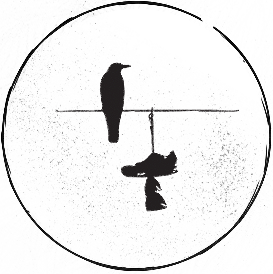Temperance and Tapering: The Trials of Cutting Back
April 6, 2023
When you grow accustomed to living a certain way, it’s disorienting to make a change. Anyone who’s trained for a marathon knows well the physical and psychological challenges of tapering (a reduction in running as the goal race nears). Same goes for restricting alcohol. You know it’s a good thing, but damn is it hard.
Here’s the biggest problem with cutting back. You become preoccupied with what you can’t do. You operate from a place of lack, or scarcity.
The scarcity mindset is self-fulfilling. Any time you think you’re missing out on something, you will suffer.
A runner in the throes of a taper forgets the months of hard work and frets about whether they’ve done enough. Anxiety sets in. Plus, this thing they love, which occupies hours in the day, is suddenly gone. Similarly, a moderating drinker worries about missed social opportunities and judgements from others. They also forego a key component of their daily routine and an “easy button” for coping with stress.
The scarcity mindset is self-fulfilling. Any time the tapering runner or abstaining drinker think they’re missing out on something, they will suffer. At the extreme end of the spectrum, negative emotions, dredged up by wanting things to be different than they are, can lead to a spiral of declining self worth. Yuck.
There are physical realities to confront as well. Runners who sharply reduce activity may have aches, pains, and “phantom injuries.” Drinkers cutting back might experience uncomfortable withdrawals and cravings. Both could have changes in energy, sleep, appetite, and mood.
So, how can you mitigate the pain of cutting back? Check that. How can you thrive in these situations?
Mentally, you must shift gears from what you can’t do to what you can. Have-nots to haves. I know, I know… Oversimplify much? But it’s true. Focus on gratitude, and there won’t be any air left in the room for scarcity.
In his (often self-consciously grouchy) bestseller, The Subtle Art of Not Giving a F*ck, Mark Manson writes, “Rejection is an inherent and necessary part of maintaining our identity. We are defined by what we choose to reject.”
So, feel all the feels. Spend some quality time with them. Nice to meet you. And then… Let go (or “reject,” if you prefer the Manson jargon). Now you’re ready for a mindset shift.
To nudge lack off the stage and give gratitude the spotlight, pay attention to the good.
What’s the opposite of scarcity? Researcher and author Brené Brown argues that it’s the idea of “enough.” Unlike the lows of lack and the highs of abundance, enough is sustainable. We can hang out there without teeth-grinding effort. Enough is easy. In The Gifts of Imperfection, Brown says “…practicing gratitude is how we acknowledge that there’s enough and that we’re enough.”
The key word is “practice.” To nudge lack off the stage and give gratitude the spotlight, pay attention to the good. Start every day with a walk or meditation that quiets the mind; a clean sheet of paper. Finish with a journal entry that names the things you’re thankful for.
Runners, go back through your training diary (you do keep a training diary, right?) and reflect on how far you’ve come. Remember the early mornings, the times you didn’t want to go, but did anyway. Remember that reduced cortisol levels are probably “unmasking” some physical aches. Feel that energy coursing through your legs as muscles and tendons rebuild stronger.
Drinkers, notice your clarity of mind. Do things feel sharper? Are you more patient and empathetic in your relationships? Better able to focus at work (maybe less preoccupied with five o’clock)? Compare these feelings you notice while sober with the ones you have, in the same situations, under the influence. Understand, too, that dopamine levels are normalizing and this can manifest as anxiety and irritability. It will pass. Light exercise (jogging!) can help.
Runners who drink, you’ll notice a cavalcade of good stuff to be thankful for, and your gratitude practice can encompass all the above.
Above all, know that temperance and tapering are challenging for everyone. You’ve stressed the body and the mind, and (as The Formula tells us) rest is in order. Savor this time of rejuvenation, take note of all the good it brings, and take pride in leveling up.


